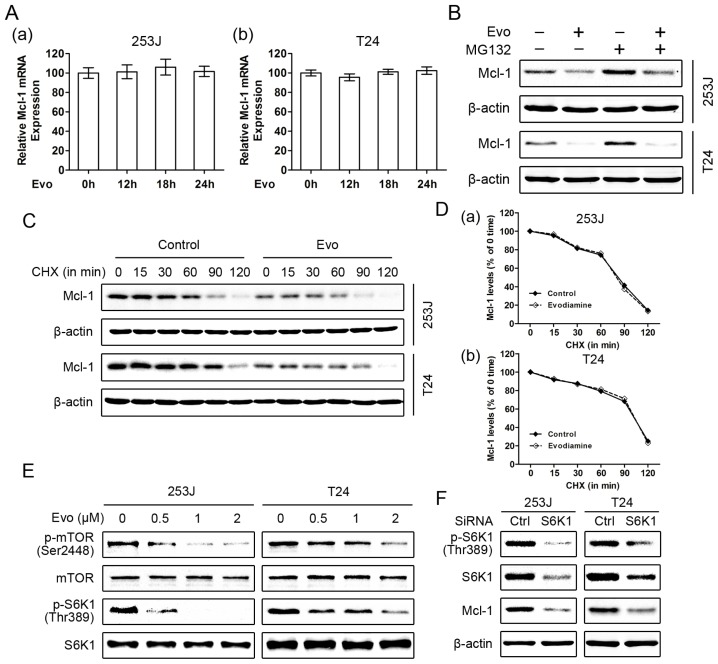Figure 5.
Evodiamine downregulates Mcl-1 expression through the mTOR/S6K1 pathway. (A) Evodiamine (Evo) does not affect Mcl-1 mRNA expression. 253J (a) and T24 (b) cells were treated with 1 μM evodiamine for the indicated times. The expression levels of Mcl-1 mRNA were analyzed by quantitative real-time PCR. Columns, means of triplicate determinations; Bars, SDs; (B) The proteasome inhibitor MG132 does not inhibit Mcl-1 reduction by evodiamine. The given cell lines were treated with 1 μM evodiamine for 24 h, and were either incubated or not with 20 μM MG132 for the last four hours. Cells were harvested to detect Mcl-1 protein levels; (C,D) Evodiamine does not alter the protein stability of Mcl-1. Cells were treated with or without 1 μM evodiamine for 12 h, followed by 10 μg/mL cycloheximide (CHX) for the indicated times. Mcl-1 protein levels were analyzed by Western blotting (C). Protein levels were then quantified with Quantity One software (Bio-Rad) and normalized to β-actin. The results were plotted as the relative Mcl-1 levels compared with those at the time 0 of CHX treatment (D); (E) Evodiamine suppresses the phosphorylation of mTOR and S6K1. 253J and RT4 cells were treated with 1 μM evodiamine for the indicated times and subsequent harvested to detect the phosphorylation of mTOR and S6K1; (F) Knockdown of S6K1 reduces Mcl-1 levels. Cells were transfected with control (Ctrl) or S6K1 siRNA. Forty-eight hours after transfection, the cells were harvested for Western blotting to detect the indicated proteins. β-actin was used as a loading control. Data shown are representative of three independent experiments.

